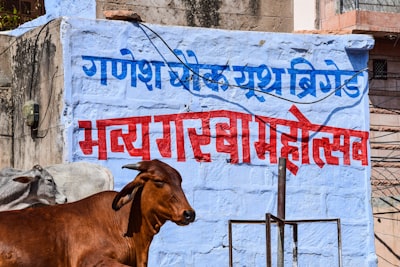The Hindi-Marathi Language Debate: Why Maharashtra's Latest Policy Sparks National Interest
The recent decision to make Hindi compulsory as the third language in Maharashtra’s schools has reignited an age-old debate about linguistic identity, federalism, and cultural politics in India. As BJP leader Nitesh Rane sharply criticized the Thackeray brothers for opposing the move, social media and news cycles have lit up with searches and opinion pieces on the issue. Let's unpack the controversy, its implications, and connected debates sweeping the country.
Why Are Politicians Sparring Over Language Policies?
Language policy in India is not just about education—it's about identity, unity, and sometimes, perceived threats to regional cultures. When the Maharashtra government proposed making Hindi the third language in schools, parties led by Raj Thackeray and Uddhav Thackeray joined forces to oppose what they see as ‘imposition.’ Their critics, like BJP’s Nitesh Rane, argue that such opposition is more about political posturing than protecting Marathi.
Key Search Trends:
- "Hindi imposition in Maharashtra"
- "Marathi vs Hindi debate"
- "State language policy India"
- "Why are Thackerays against Hindi?"
- "Regional languages vs national integration"
Bollywood, Politics, and the Hindi Language
Rane’s remarks also point fingers at celebrities like Rahul Gandhi, Javed Akhtar, and Aamir Khan, accusing political opponents of selective outrage over language use. This opens up a larger question: why does Bollywood, based in Mumbai, predominantly produce Hindi cinema in a Marathi-speaking region? And do celebrities have a role in either promoting or diluting local cultures?
Related Talking Points:
- Bollywood’s contribution to promoting Hindi pan-India
- The impact of film and television on regional languages
- Calls for prominent personalities to champion regional languages
Why Is Language Such a Contentious Issue?
In states like Maharashtra, language is deeply tied to local identity. Pro-Maharashtrian parties have long advocated for Marathi primacy in administration, education, and culture. The central government’s push for Hindi, or even the perception of it, can feel threatening to this identity, prompting sustained resistance.
Impact on Education and Society:
- Parents wondering what the ‘third language’ rule means for their children
- Teachers' concerns over curriculum pressures
- Students facing additional exams and homework
The Bigger Picture: Language Policy Across India
This isn’t the first—nor will it be the last—debate over language policy in India. States like Tamil Nadu, Karnataka, and West Bengal have also resisted Hindi’s spread. This reflects a broader tension within India’s federal structure: how to balance unity and diversity.
Emerging Issues To Watch:
- The three-language formula and its future
- Rising searches for “how to learn Marathi” or “benefits of regional languages”
- National Education Policy (NEP 2020) and its language provisions
Conclusion: Language, Politics, and the Indian Identity Puzzle
The Maharashtra language debate is about much more than textbooks; it’s a mirror on India’s complex web of identities and the uneasy balance between local pride and national integration. As policies evolve and elections loom, expect these debates to grow sharper—and more visible in your newsfeed.
FAQ
Q: What is the three-language formula in Indian schools?
A: It typically means students learn three languages: a regional/state language, Hindi, and English.
Q: Is Hindi compulsory in all Indian states?
A: No. Implementation varies, and many southern and eastern states officially oppose compulsory Hindi.
Q: How can parents support their children amid new language rules?
A: Encourage language learning as a skill, use online resources, and discuss the cultural value of all languages.

Comments
No comments yet. Be the first to comment!